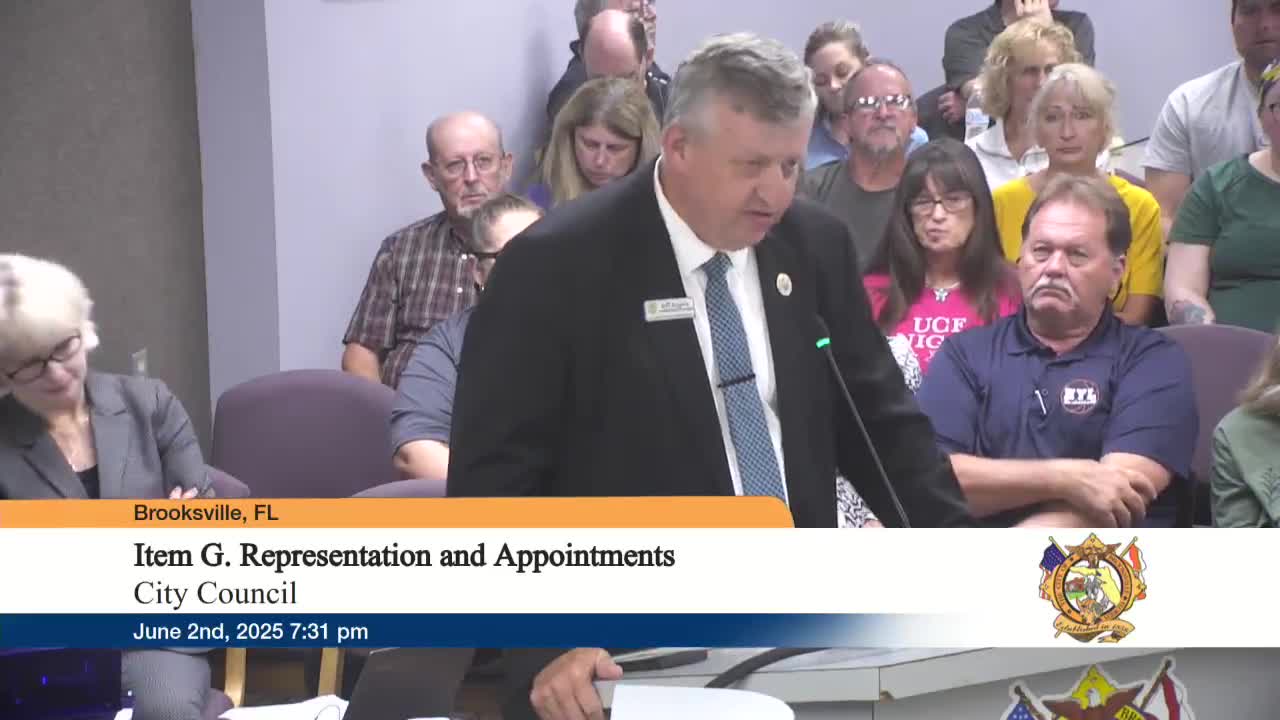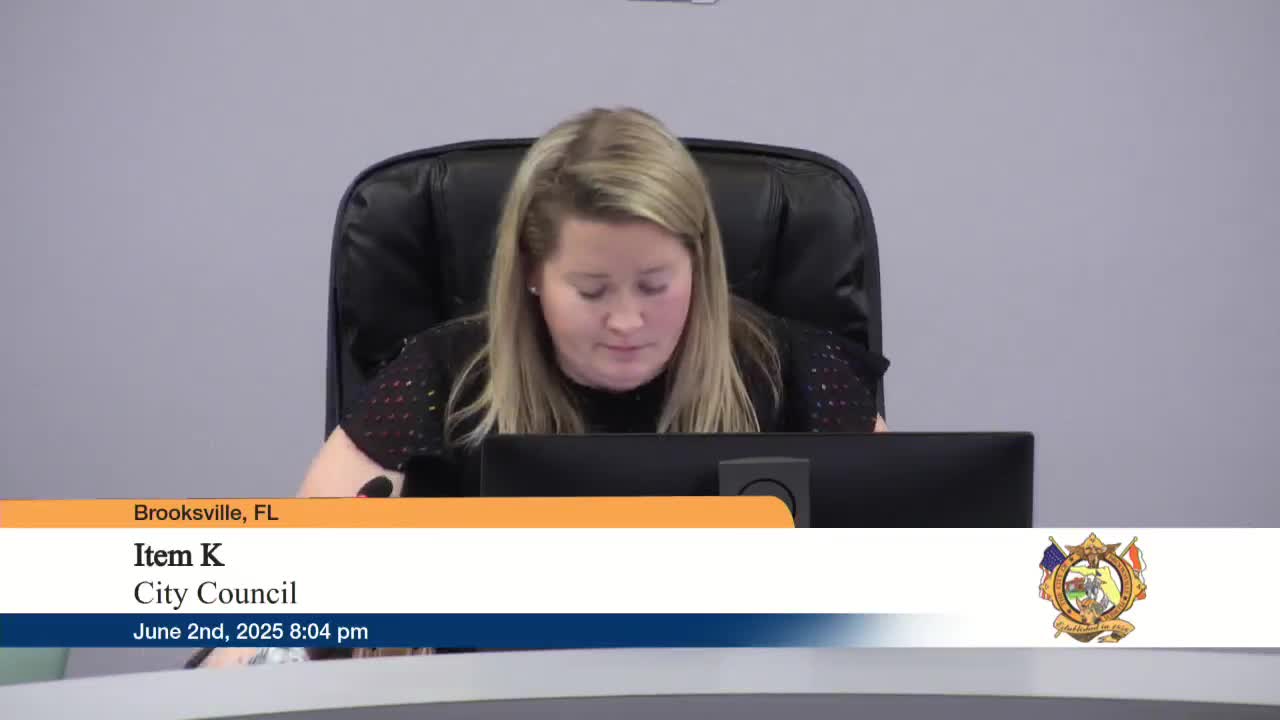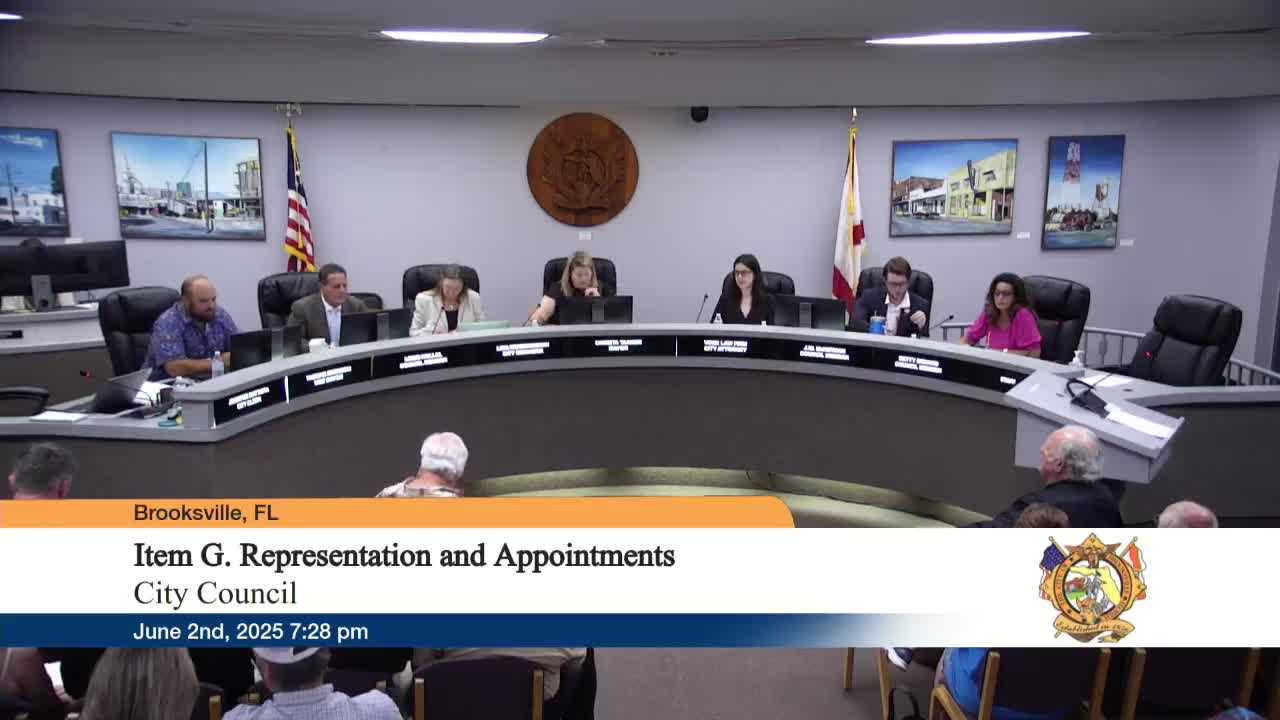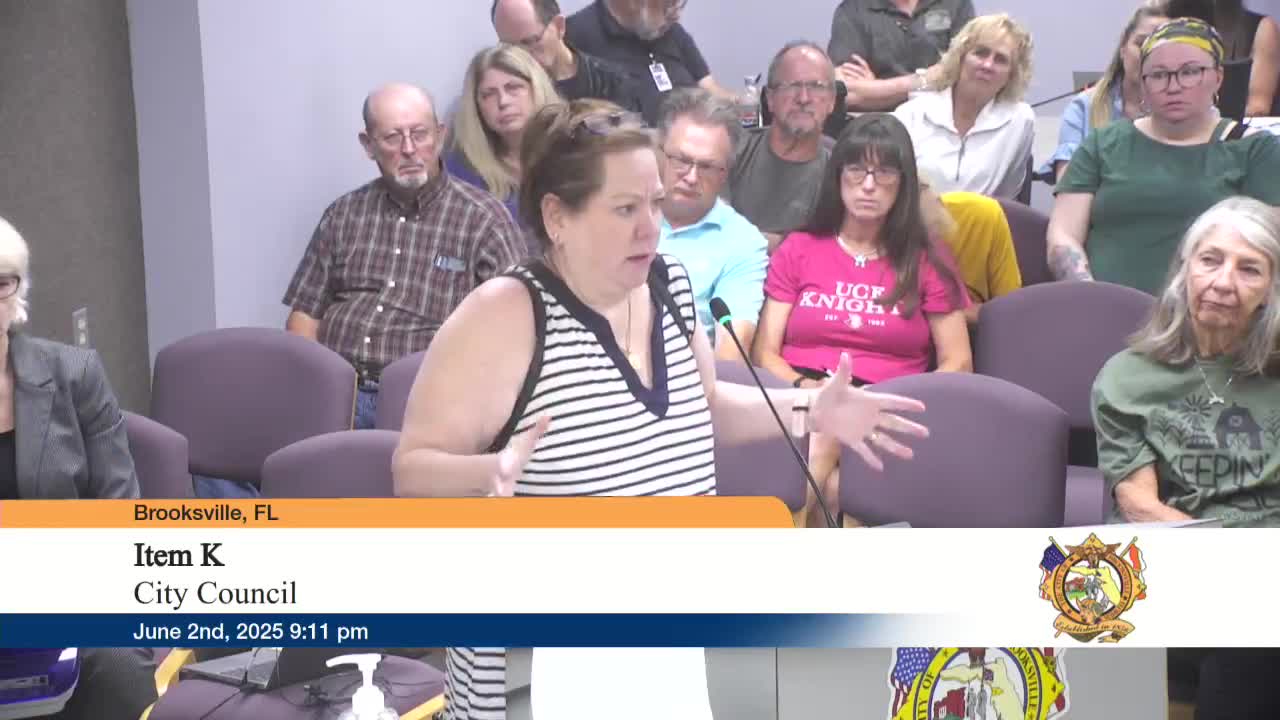Article not found
This article is no longer available. But don't worry—we've gathered other articles that discuss the same topic.

Hernando County says it will end ALS funding agreement; county, city and fire chief stress no change in response services

Council approves first reading for Springside Crossing rezoning after lengthy public debate

Council reappoints Cliff Manuel to Brooksville Housing Authority

